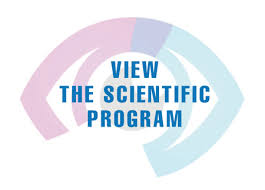
Samiha Mirza
University of York, United Kingdom
Title: A systematic review on measurement properties of an observational tool (Infant CARE-Index) used to assess the parent-infant interactions from birth up to 15 months
Biography
Biography: Samiha Mirza
Abstract
Statement of the Problem: All children deserve the best possible start in life. Unfortunately, not all children get this. Early interventions provided to those at risk can substantially improve childrens’ later socioemotional development, only if the assessment procedures are robust and standardised to reach those families who need it the most. Various assessment tools are used to assess parent-child interactions from birth up to 12 months, but these are generally based on measurement scales which assess either parenting behaviour or infant behaviour and not both (dyadic context). Infant CARE-Index is a multi-dimensional observational tool, which assesses the parent-child interaction in a dyadic context from birth up to 15 months. It has the added advantage of detecting child abuse and neglect and can be used for screening and planning and monitoring interventions. The purpose of this systematic review is to highlight the measurement properties of Infant CARE-Index which have been assessed in literature so far. Methodology: Main databases searched included; MEDLINE, CINAHL plus, ERIC, EMBASE, PsycINFO, Web of Science and Scopus. Inclusion criteria for articles consisted of sample population consisiting of parent-child dyads, child age range:0-15 months, use of Infant CARE-Index and English Language. 620 articles were identified with the initial search. 27 articles meeting the inclusion criteria were subjected to data extraction. COSMIN checklist was extensively used for assessing reliability and validity evidence in the included articles. Results showed that none of the included studies were designed to test the measurement properties of Infant CARE-Index. The only evidence that was retrieved was on inter rater reliability and hypothesis testing. Conclusion and recommendations: There is a need to conduct good quality validity and reliability studies on Infant CARE-Index.This may aid in filling the evidence gap indicated in NICE guidelines on attachment difficulties regarding the need of a standardised tool for measuring parent-child interactions (0-12 months).

